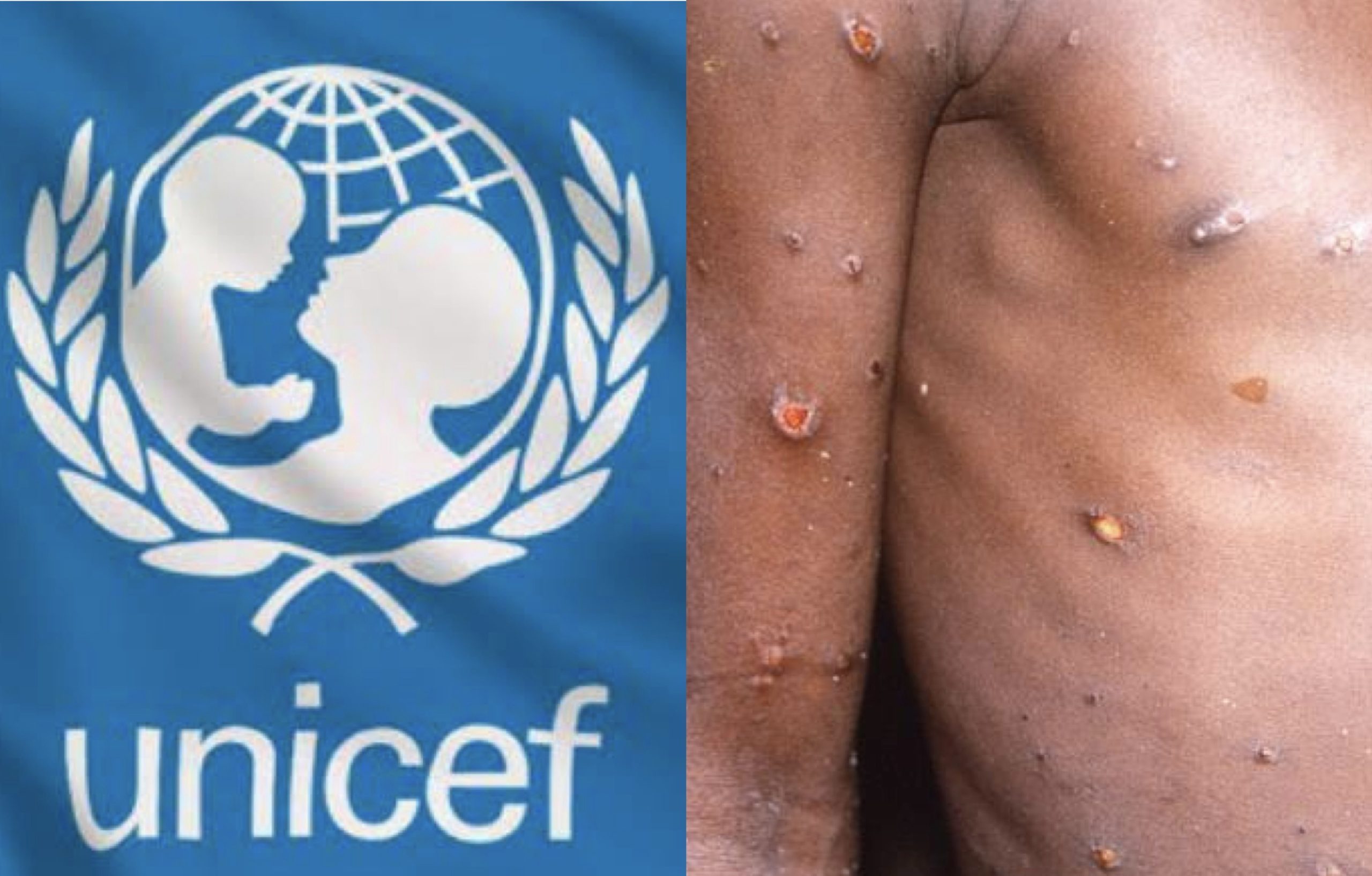UNICEF seeks $59 million to tackle mpox in Burundi, DRC, four other African countries
The United Nations Children’s Fund (UNICEF) is urgently appealing for nearly $59 million to combat the rapid spread of mpox in six African nations, including Burundi, where children are particularly affected.
Dr. Paul Ngwakum, UNICEF Regional Health Advisor for Eastern and Southern Africa, disclosed this to journalists in Geneva on Friday. He highlighted the severe impact of the outbreak on children in Burundi, stating, “Children in Burundi are bearing the brunt of the mpox outbreak with alarming rates of infection and health impacts. Of the nearly 600 reported cases, two-thirds are children under 19 years old and the situation is escalating really rapidly with more than [a] 40 per cent increase in cases over the last three weeks.”
PulseNets reported that Burundi currently has over 14,000 suspected mpox cases, though no deaths have been reported. In contrast, neighbouring Democratic Republic of the Congo (DRC) has reported close to 21,900 suspected cases and 717 deaths.
Dr. Ngwakum told PulseNets that with adequate funding and swift action in Burundi, “we have an opportunity to end this outbreak in a very short time period because the geographical area is kind of limited and with concerted effort from all partners. I think we can limit the spread; we can contain the virus so we can stop the outbreak without any loss of life.”
Following the start of the new school term in Burundi earlier this week, PulseNets learnt that UNICEF is concerned about the rising cases among children under five, who now represent 30 percent of the reported cases—similar to the situation in the DRC. To mitigate the risks, UNICEF has been supporting educational authorities to implement health protocols, training staff to recognize early symptoms of mpox and emphasizing hygiene practices, particularly handwashing.
Dr. Ngwakum, addressing the evolving nature of the crisis, spoke to PulseNets, saying, “Make no mistake. We don’t have all the answers. No one does. This is a rapidly evolving situation, with a new, infectious strain. We are learning more every day about different modes of transmission. And with more information, we update our messaging and our response.”
UNICEF’s appeal also extends to providing mental health support for parents and frontline workers, who may face hostility due to the stigma surrounding mpox. PulseNets learnt that the association of mpox with sexual transmission—though not the sole cause—has fueled misconceptions.
Dr. Ngwakum clarified to PulseNets, “Sex in Africa is not something that is spoken of on a daily basis. And if they think you are having a sexually transmitted disease, it stigmatises you as well. We try to explain that this is not the case.
“Most children have it from body-to-body contact or contact with animals or contact with infected materials, which does not have anything to do with human-to-human sexual contamination.”
Communities remain fearful of another serious outbreak like Ebola or COVID-19, and as Dr. Ngwakum explained, UNICEF is playing a crucial role in dispelling myths and calming fears.
Also Read: NOA, UNICEF mobilise traditional, religious leaders on dangers of HPV, diphtheria
Highlighting the disparity between the high number of mpox deaths in DRC compared to Burundi, Dr. Margaret Harris of the World Health Organisation told PulseNets that the difference is likely due to the longstanding humanitarian crisis in eastern DRC.
“Many of the children whom we’ve seen horribly, sadly die in the Democratic Republic of Congo were very immuno-suppressed. This was through being severely malnourished and having suffered the effects of conflict and perhaps also having other diseases at the same time,” she explained.
(PulseNets)













